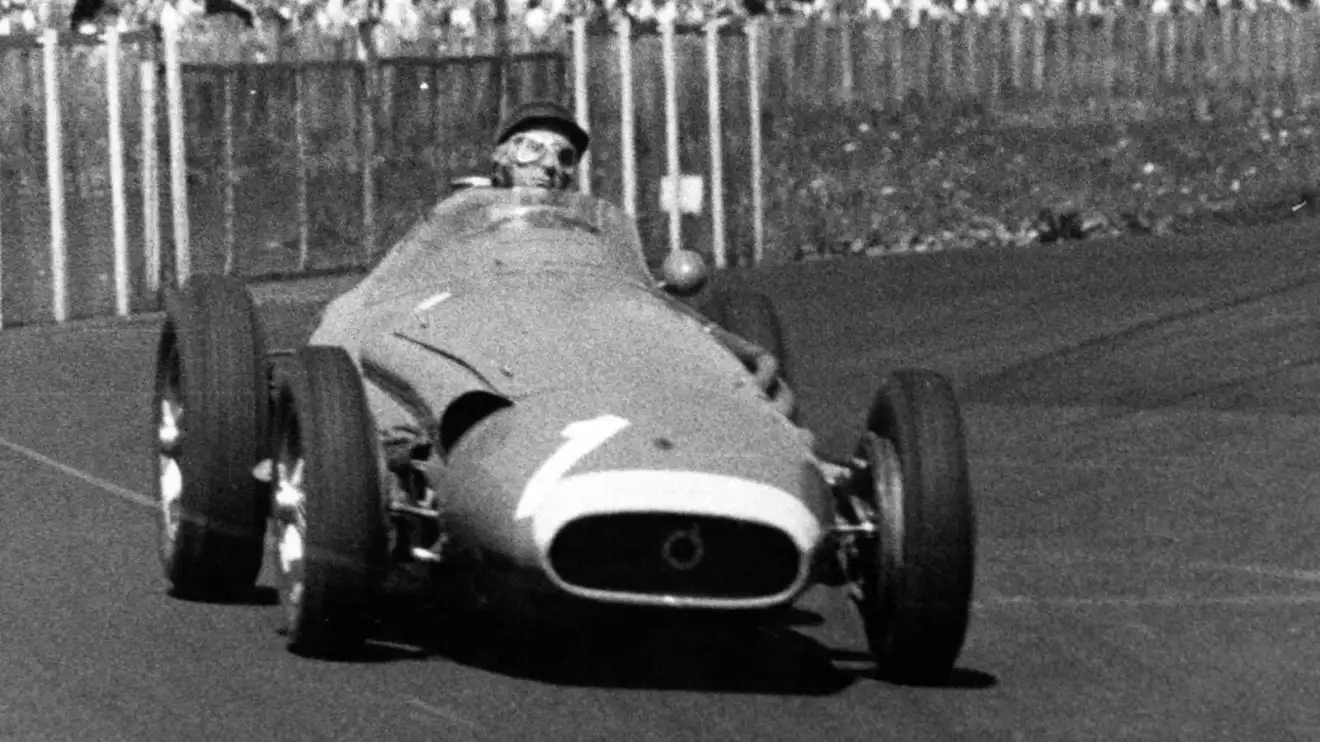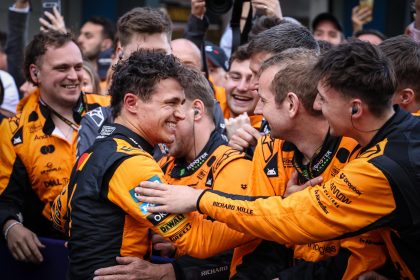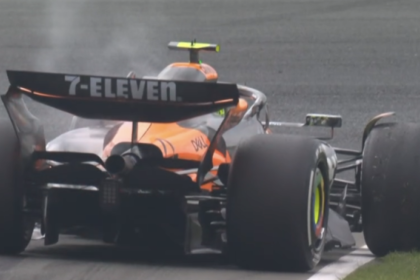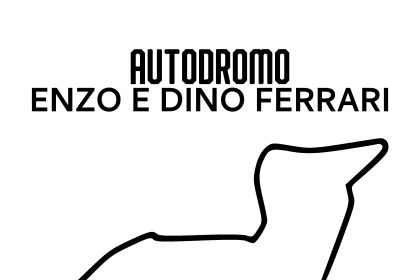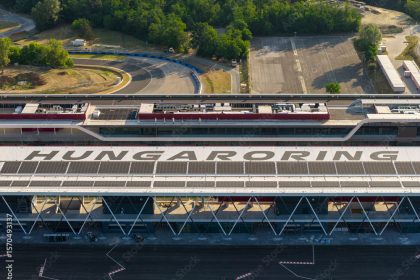There are names in Formula 1 that echo through the decades, but only a handful that seem to grow larger with every passing year. On this, the 114th anniversary of Juan Manuel Fangio’s birth—24 June 2025—the sport pauses, as it does every year, to remember the man who remains the yardstick for greatness. In an era where every millisecond is dissected by supercomputers and drivers are coached by armies of engineers, Fangio’s legend endures, not because of what he did with data, but because of what he did without it. His instinct, his feel, his uncanny ability to sense the limit—these are qualities that, even now, outpace the best that algorithms can offer.
- The Old Man from Balcarce
- The Nüburgring Miracle: When Instinct Trumped Calculation
- The Gentleman and the Killer Instinct
- The Heat of Buenos Aires and the Cold Logic of Survival
- The Data Era: Fangio’s Shadow Over the Algorithm
- The Myth and the Man: Stories That Refuse to Fade
- Fangio in the Eyes of the Modern Paddock
- The Numbers That Refuse to Be Beaten
- The Maestro’s Enduring Lesson
- Waste a Bit More Time
The Old Man from Balcarce
Fangio was born in 1911 in Balcarce, Argentina, the son of Italian immigrants. He was not the product of privilege or pedigree, but of grit, mechanical know-how, and a stubborn refusal to accept the limits imposed by circumstance. By the time he arrived in Europe, he was already in his late thirties—a time when most modern drivers are contemplating retirement, not the start of a Grand Prix career.
He would go on to win five World Championships (1951, 1954, 1955, 1956, 1957), a record that stood for nearly half a century. He did it with four different teams—Alfa Romeo, Maserati, Mercedes-Benz, and Ferrari—a feat that remains unmatched. His win percentage (46%) is still the highest in Formula 1 history. These are numbers that, even in the age of Hamilton and Verstappen, remain untouchable.
You must always strive to be the best, but you must never believe that you are.
Juan Manuel Fangio

The Nüburgring Miracle: When Instinct Trumped Calculation
If you want to understand why Fangio is still revered, look no further than the 1957 German Grand Prix at the Nürburgring. Fangio, then 46 years old, was driving a Maserati 250F against the younger, faster Ferraris of Mike Hawthorn and Peter Collins. After a disastrous pit stop, he found himself nearly a minute behind with just ten laps to go. What followed was a masterclass in controlled aggression: Fangio broke the lap record ten times in succession, hunting down and passing both Ferraris on the penultimate lap to win the race—and the championship.
This was not the result of data analysis or simulation. It was pure instinct, honed by years of racing on the ragged edge. Fangio himself later admitted, I have never driven that quickly before in my life and I don’t think I will ever be able to do so again. The Nürburgring drive is still referenced by modern drivers and commentators as the ultimate example of what it means to be a racing driver.
For a vivid retelling of this legendary race, see the detailed tribute at GrandPrix.com.
The Gentleman and the Killer Instinct
Fangio was a paradox: a quiet, self-effacing man out of the cockpit, but a ruthless competitor within it. He was known for his mechanical sympathy—he could coax a car to the finish when others would break it—and for his tactical intelligence. He won not by brute force, but by understanding what the car needed, and what the race required.
His sportsmanship was legendary. The story goes that at the 1955 British Grand Prix at Aintree, Fangio may have allowed his young teammate Stirling Moss to win his home race. Moss would ask him for years if it was true, and Fangio would always reply, No, you were better than me that day. Whether or not it’s true, the story endures because it fits the man.
Fangio, in my opinion, was the greatest driver of all time.
Sir Stirling Moss
Read more at GrandPrix247
The Heat of Buenos Aires and the Cold Logic of Survival
The 1955 Argentine Grand Prix was run in conditions so hot that cockpit temperatures reached 50°C (122°F). Drivers collapsed from heat exhaustion, but Fangio, ever the stoic, endured and won. It was not just physical toughness, but mental resilience—a refusal to yield to discomfort or danger.
He survived a near-fatal crash at Monza in 1952, breaking his neck and missing the rest of the season. He returned, undiminished, to win four more titles. In 1958, he was kidnapped by Cuban revolutionaries before a race in Havana, only to be released unharmed after charming his captors. The man was unflappable.
The Data Era: Fangio’s Shadow Over the Algorithm
Modern Formula 1 is a world away from Fangio’s time. Today’s drivers are surrounded by data: tire temperatures, brake wear, fuel consumption, GPS overlays, and predictive models. Every corner is analyzed, every lap dissected. Yet, when you ask the greats of the modern era—Hamilton, Schumacher, Vettel—they all defer to Fangio.
Fangio is on a level much higher than I see myself.
Michael Schumacher
Fangio’s achievements are all the more remarkable because they were accomplished without telemetry, without simulators, without even radio communication. He relied on feel, on intuition, on a kind of sixth sense that cannot be taught or measured. His ability to adapt to different cars, different circuits, and different conditions remains the gold standard.
The Myth and the Man: Stories That Refuse to Fade
There are stories that have become part of Formula 1 folklore. Fangio’s first victory at Monaco in 1950, where he avoided a massive pile-up by noticing the crowd’s reaction—a lesson in observation and anticipation. His willingness to switch teams, always seeking the best machinery, was seen as mercenary by some, but strategic genius by others. He was the ultimate professional, but never lost his humility.
His personal life was equally unorthodox. He never married, but was never short of admirers. He was a national hero in Argentina, but remained modest to the end. When asked how much he wanted to be paid by Alfa Romeo, he replied, I’ll just sign the contract and let you fill in the noughts.
For a deeper dive into Fangio’s life and legacy, visit the Formula 1 Hall of Fame.
Fangio in the Eyes of the Modern Paddock
It is fashionable in 2025 to talk about “data-driven decision making” and “performance optimization.” Yet, when the subject turns to Fangio, even the most hardened engineers and statisticians soften. They speak of “feel,” of “racecraft,” of “the human element.” Fangio’s name is invoked not as a relic, but as a reminder of what the sport aspires to be.
Modern drivers, with their telemetry and simulators, still struggle to match Fangio’s adaptability. He won with four different constructors, in cars that were as different as chalk and cheese. He raced on circuits that would make today’s safety delegates faint. He did it all with a smile, a handshake, and a nod to the mechanics.
The Numbers That Refuse to Be Beaten
Let’s put Fangio’s achievements in perspective:
| Statistic | Value |
|---|---|
| Championships | 5 |
| Wins | 24 |
| Podiums | 35 |
| Poles | 29 |
| Fastest Laps | 23 |
| Teams | Alfa Romeo, Maserati, Mercedes-Benz, Ferrari |
| Active Years | 1950–1958 |
His win percentage (46%) remains the highest in F1 history. He won five titles in just seven full seasons. He was the oldest World Champion at 46—a record that still stands. These are not just numbers; they are monuments.
The Maestro’s Enduring Lesson
What, then, is Fangio’s legacy in 2025? It is not just in the statistics, or the trophies, or the stories. It is in the way he raced: with instinct, with intelligence, with respect for the machine and the men around him. In a sport that is increasingly dominated by technology, Fangio reminds us that the greatest advantage is still the human one.
As the sport looks to the future—autonomous cars, artificial intelligence, ever more sophisticated data analysis—it is worth remembering that the greatest driver of all time did it all by feel. His instinct still outpaces data.
Waste a Bit More Time
- Read the full Hall of Fame profile: Formula 1 Hall of Fame – Juan Manuel Fangio
- Explore Fangio’s legendary 300 SL: Fangio’s Farewell: A Legendary 300 SL Last Owned by El Maestro
- For a Spanish-language tribute: Un tributo al chueco… Remembering the Maestro
- Facebook video tribute: Mercedes AMG F1 – Fangio: A True Motorsport Icon







